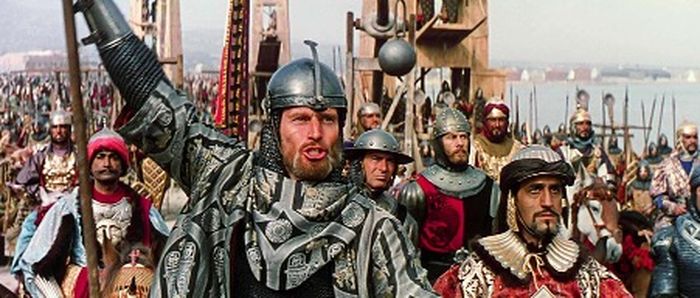Worlds Apart: The Witcher as seen by a Game of Thrones fan
Out from the shadow of Game of Thrones emerges The Witcher, seeking a destiny all of its own, argues Ryan Yeap
In December 2019, Netflix tapped into the high fantasy genre with a live-action adaptation of Andrzej Sapkowski’s iconic Witcher series. Based on the short stories The Last Wish and Sword of Destiny, The Witcher saw the titular, ashen-haired monster-hunter Geralt of Rivia (Henry Cavill) on his adventures in a sprawling fictional landmass known as “the Continent”. Packed with swords, monsters, and other medieval paraphernalia, Netflix promised to deliver a fantasy epic to veterans of the books and newcomers alike. However, the show was also uniquely poised to cater to another (rather specific) demographic – Game of Thrones (GoT) fans.
GoT fans were left bereft following its abysmal final season, and many (like myself) scrambled to The Witcher to slake their thirst for fantasy-action television. Unsurprisingly, both shows were subjected to rigorous comparison. Both were productions with generous budgets committed to bringing their respective source material to life. The Witcher, set in “the Continent”, mirrored GoT, which was set in a similar fictional realm called “Westeros”. Both detailed a clash of kingdoms: the former saw invaders from “Nilfgaard” waging war on its northern neighbour “Cintra”, while the latter saw seven noble kingdoms vying for the coveted “Iron Throne”. Oh – and let’s not forget that both had dragons too.
While similar in form, the substantive differences gradually came to light upon closer inspection. Thematically, both shows were worlds apart: The Witcher stressed the importance of leaving fate to “destiny” in the deeply spiritual world of the Continent, whereas GoT centred on the relentless pursuit of monarchical power and its destructive ramifications. More apparent, however, were the stark differences in narrative scale. GoT thrust viewers into the deep end of an all-encompassing dynastic war, driven by an almost dizzying ensemble cast. Conversely, The Witcher guided audiences through intimate vignettes of its three main characters – Geralt of Rivia, sorceress Yennefer of Vengerberg (Anya Chalotra), and crown princess Cirilla “Ciri” of Cintra (Freya Allen). Though many felt short changed, I welcomed The Witcher’s more patient, character-driven approach, compared to the high-stakes politicking of GoT. This direction allowed for strong performances, which were perhaps the highlight of the series.
Sadly, The Witcher wasn’t consistent across all departments, and compromises became painfully noticeable in its eight-episode first season. In particular, set pieces felt hollow and underdeveloped, despite the show’s remarkably healthy budget. The result was a fictional landscape that felt more like a haphazard stitch of lifeless locations, lacking the cohesiveness and grandeur of a more curated fantasy world like Westeros. This lack of polish was also evident in The Witcher’s script, which had none of the Shakespearean flair of GoT. Characters tirelessly repeated the word “destiny”, as if viewers hadn’t already gotten the memo the first time around, and the series fell into the trap of long-winded, meandering exposition that neglected the cardinal rule: show, don’t tell.
“I lamented the lack of polish and grandeur expected of a high-fantasy television show.”
But perhaps the biggest criticism of The Witcher was how amateurly executed the storytelling was. Crucially, the first season received flak for its confusing non-linear structure. Though producer Lauren Schmidt Hissrich had been understandably inspired by Christopher Nolan’s Dunkirk, the final product left much more to be desired. Viewers had no discernible way of telling when the show had made a time-jump – especially since the characters (even human ones) don’t seem to age a day in the Continent. The result was a disappointingly choppy string of episodes devoid of the cinematic elegance possible with non-linear storytelling.
In short, The Witcher paled in comparison to GoT upon release, reflected astutely by its mediocre score of 53 on Metacritic. But that’s not to say that The Witcher was a complete flop: after all, Netflix reported that within The Witcher’s first month of release, it had amassed a whopping audience of 76 million member households. Clearly, Geralt and his compatriots had garnered a sizable (and impressive) fan following, one that rivalled the likes of GoT. Arguably, despite a lacklustre debut season, Netflix had already laid the groundwork for a much stronger sophomore outing.
Ultimately, while the first season didn’t exceed my expectations, credit is due for not undermining them as hard as GoT in the end. I appreciated the intimate look into each character’s origin, but I lamented the lack of polish and grandeur expected of a high-fantasy television show. Combined with a bloated script and confusing structure, the average Metacritic score was warranted. Let’s hope that The Witcher team can take these criticisms in stride. After all, the second season is due for release in 2021, and I’m certainly one of many who are eager to see what’s in store.
 News / Uni to ‘review’ tripos rankings and weekend lectures in undergrad teaching overhaul10 April 2025
News / Uni to ‘review’ tripos rankings and weekend lectures in undergrad teaching overhaul10 April 2025 News / Rowing row continues as Oxford and Cambridge scrap women’s trial race9 April 2025
News / Rowing row continues as Oxford and Cambridge scrap women’s trial race9 April 2025 Comment / Death of the June Event?9 April 2025
Comment / Death of the June Event?9 April 2025 Features / Cambridge: where toxic productivity turns rest into a radical act8 April 2025
Features / Cambridge: where toxic productivity turns rest into a radical act8 April 2025 News / Under 3% of applicants for Cambridge academic jobs are successful7 April 2025
News / Under 3% of applicants for Cambridge academic jobs are successful7 April 2025






